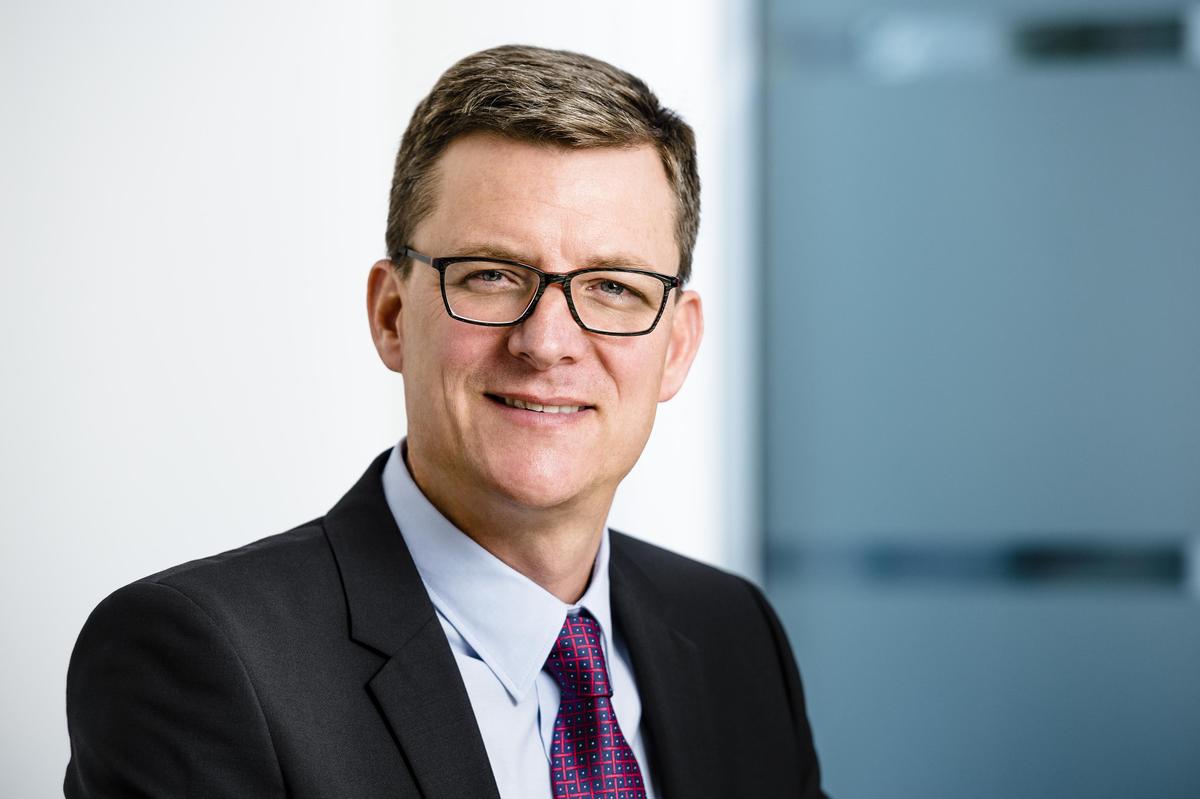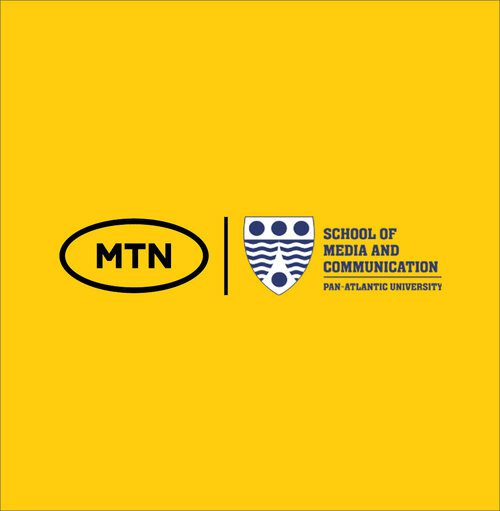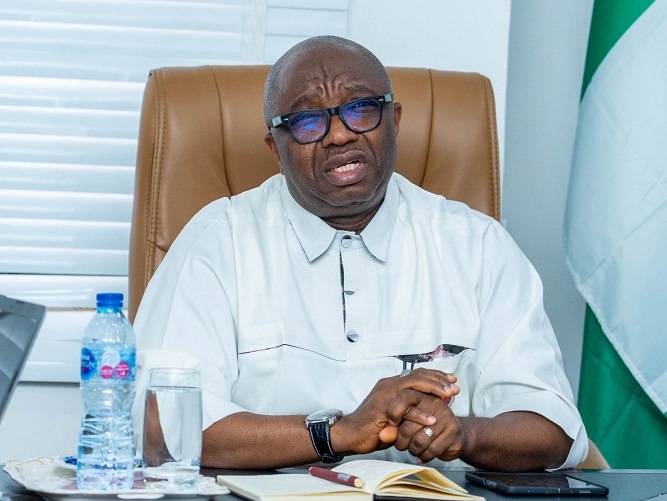Telecom
MTN Returns to Profitability in 2017 Annual Report

MTN’s earnings swung back to profit for the year ended 31 December 2017, although the strong rand dented revenue growth and new subscriber definitions saw active customer numbers tumble.
The telco giant today reported positive headline earnings per share (HEPS) of 182c compared to a full-year headline loss per share of 77c at the end of 2016.
“We are back in the black, with an attributable profit for the full year of R4.4 billion, as you know we had a loss of R2.6 billion in 2016,” group CEO Rob Shuter said in a conference call.
The group’s revenue for the 12 months increased by 6.8% on a constant currency basis, but was actually down by 10.2%, at R132.8 billion, when currency changes were included. Group service revenue was also hit by the strong rand during the period, decreasing by 10.8% to R124.4 billion, but would have been up 7.2% had the currency remained constant.
“The stronger rand and the significant year-on-year (YOY) depreciation of the naira against the US dollar had a negative translation impact on rand-reported results for the period.
The average naira depreciated by 25.8% against the US dollar in the year, and the closing rate was down 13.1% YOY. The average rand strengthened by 9.6% against the US dollar YOY, and the rand closed 10.7% stronger. In light of recent developments in SA, we expect the rand to remain robust throughout 2018,” the group said.
Reported data revenue increased by 19.4% to R28.2 billion. Digital revenue decreased by 6.9%, to R13 billion, but would have been up by 14% on a constant currency basis.
“The digital revenue is slightly disappointing, and there are two things going on in there: a very strong performance by Mobile Money and by our new rich media services, but a lot of pressure in the old value-added services subscription business, where we have been doing a big optimisation of that business largely in Nigeria,” Shuter said.
Active MTN Mobile Money customers increased by 5.7 million to 21.8 million across the group. Group voice revenue was largely flat. Shuter said: “Ideally, long-term flat voice revenue is a pretty good achievement,” although Nigeria actually saw outgoing voice revenue increase by 7.5% for the year.
Earnings before interest, taxes, depreciation and amortisation (EBITDA) grew 15.2% for the year, to R46 billion, while the EBITDA margin decreased by 1.4 percentage points to 34%.
Capital expenditure (capex) for the year was close to R31.5 billion, slightly higher than the previous guidance of R30 billion. The telco rolled out a total of 8 583 3G and 8 611 4G co-located sites in the year, which it says “resulted in a marked improvement in network quality and capacity across a number of our markets”.
MTN spent R11.4 billion on capex in SA and almost R9 billion in Nigeria. The group plans to spend a total of R27.7 billion in 2018, with the guidance for SA at R9.6 billion and for Nigeria at R6.9 billion.
The group declared a final dividend of R4.50 per share, which brings the total dividend for the year up to R7 per share. Shuter, however, said the board had decided to rebase the dividend for the 2018 financial year, setting the guidance at just R5 per share. He said the group believes it will grow the dividend by between 10% and 20% going forward.
At 31 December 2017, the group had 217 million subscribers, based on the new modernised definitions, a sharp drop of 23.4 million from the 240.4 million subscribers the group had a year ago.
At the telco’s half-year results last August, Shuter explained the telco’s initiative to modernise its subscriber definitions, which led to a 3.6% drop in half-year subscribers.
This, as the group culled subscribers, which were only regarded as active because they receive a bulk SMS, something Shuter said was “distorting the reality of the business”. Under the new, modernised subscriber definitions, MTN South Africa had 29.5 million active customers at the end of 2017, compared to 30.8 million at the end of 2016.
In SA, Shuter said the company is making progress in building up its post-paid subscribers “from shedding subscribers the last few years, to a much better performance in the second half of the year and, in fact, a pretty meaningful 130 000 net post-paid adds in the fourth quarter.
“A big focus for the next year will be to continue to rebuild post-paid and get our enterprise business really performing well,” he added.
In 2017, subscriber numbers in Cameroon, in particular, were further affected by the disconnection of approximately 3 million subscribers to ensure adherence with regulatory requirements on subscriber registration. The group also saw regulatory related disconnections in Uganda of 750 000 subscribers.
Telecom
How MIP Is Making a Difference in The Media Landscape

MTN Media Innovation Program (MIP), a six-month fully-funded certificate fellowship designed for media professionals, is redefining journalism and content creation in Nigeria.

Now in its fourth year, MIP, launched by MTN Nigeria in partnership with the School of Media and Communication (SMC), Pan-Atlantic University, is empowering journalists, broadcasters, and content creators with the tools to adapt, innovate, and thrive in today’s challenging media landscape.
Despite promising forecast that the market value of the Nigerian entertainment and media industry will grow from US$9.0bn in 2023 to US$13.6bn in 2028, the media sector has since grappled with issues such as limited access to training, financial instability, and the rapid decline of traditional revenue models. With digital platforms disrupting how news is consumed and monetised, journalists and media owners must rethink their approach.
MIP provides a structured learning environment where media professionals gain first-hand exposure to new industry trends, digital transformation, and the intersection of media and ICT. From data journalism to audience engagement strategies, participants leave the program with actionable skills that are shaping the future of storytelling in Nigeria.
A standout feature of MIP is its international study visit to South Africa, where fellows engage with leading media institutions, visit MTN Group’s headquarters, and participate in hands-on training sessions at the University of Johannesburg. This global exposure provides invaluable insights into how media practitioners in other markets are leveraging technology and innovation to stay ahead.
For many participants, this has been a career-defining experience. Juliet Tontoye, Vice-President, MIP Cohort 3, describes the program as ‘a turning point.’ “When we share our experiences with our colleagues at our respective media houses, we realize that the program’s benefits and impact are easier to experience than explain. In the past three months, MIP has been such an eye-opening journey. It’s a fellowship every media professional needs to experience. MTN has been such a wonderful host and we know this costs millions of Naira. However, we believe it will have a profound impact on our colleagues.”
Beyond individual impact, MIP is helping reshape the media industry by fostering collaboration and leadership. By bridging the gap between traditional journalism and digital innovation, the program ensures that fellows graduate not just as better storytellers, but as industry disruptors with a mission to create lasting change. The program’s 60 alumni, now spread across Nigeria’s top media organisations, are applying their knowledge to revolutionise newsrooms, create digital-first content strategies, and introduce sustainable business models.
According to Tobechukwu Okigbo, Chief Corporate Services & Sustainability Officer, MTN Nigeria: “When we launched MIP in 2022, our goal was to enhance media professionals’ reporting capabilities and deepen their understanding of the technology sector, empowering them to become true media innovators. Seeing the impact of the programme over the past three years has been both inspiring and humbling. We are proud to continue this initiative and invite all eligible media professionals and content creators to seize this opportunity by applying for the fourth cohort.”
Similarly, the Dean of the School of Media and Communication, Pan-Atlantic University, stated: “SMC will leverage its extensive experience in training media professionals to equip this next cohort. And we will do this with our usual emphasis on creativity and ethics.”
With over 60 fellows trained since its inception in 2022, MIP is building a network of media advocates who are championing ethical reporting, storytelling innovation, and the smart use of technology in journalism.
MTN Nigeria has invested over NGN 300 Million in building Nigeria’s media industry in the past three years through its partnership with PAU.
As applications open for the 2025 cohort, the program continues to attract top-tier talent eager to take their careers to the next level and contribute to the transformation of Nigerian media.
For journalists, broadcasters, and content creators looking to future-proof their careers, the MTN Media Innovation Program is more than just a fellowship—it is a movement that is reshaping the industry, one fellow at a time.
Interested journalists, bloggers, and content creators can apply for the MIP 2025 at https://bit.ly/MTN_MIP2025.
Telecom
Nigeria Heads Anglophone Data Protection Committee

Dr. Vincent Olatunji, Chief Executive Officer of the Nigeria Data Protection Commission, has been appointed as the Chair of the Anglophone Countries Committee of the Network of Africa Data Protection Authorities (NADPA).

The appointment, confirmed on April 2, underscores Nigeria’s leadership in Africa’s data privacy efforts. Speaking after his confirmation, Olatunji urged members to prioritize collective efforts in protecting the privacy rights of over 1.4 billion Africans.
Meanwhile, Nigeria will host the 2025 NADPA Annual General Meeting and Conference in May. Themed “Balancing Innovation in Africa: Data Protection and Privacy in Emerging Technologies,” the event will showcase Nigeria’s strides in digital economy development under President Bola Ahmed Tinubu’s administration.
Telecom
NCC Asks Consumers to Monitor Data Usage to Authenticate Consumption

Nigerian Communications Commission (NCC) has charged the over 174 million telecoms subscribers in the country to constantly monitor their data usage to authenticate their consumption level.

This follows concerns being raised by telecoms consumers about the rapidity of data depletion on their devices.
The Commission particularly enjoined the consumers to always contact their service providers to make requests for cases of discrepancies noted in their data usage.
While the consumers are expected to contact their service providers to request for their usage history/statement where inconsistency exists in their data usage as first step, the Commission said they may also escalate such issues to the Commission through its toll-free Number 622 and social media platforms, especially if their requests are not satisfactorily handled.
The Commission, which also made some clarifications regarding the concerns being raised by the consumers around data usage, said the need to inform the consumers on their concerns is part of its commitment to protect and appropriately inform and educate the telecom consumer on industry issues.
Making further clarifications around data speed and usage, the Commission said data speed is the speed at which data is transferred between two devices, measured in megabits per second (Mbps or mbps), stressing that given the spread of Internet services and the immense investment in the sector, data rates have continued to increase and users may be unaware of how to measure data speed.
The telecoms regulator explained further that websites such as www.fast.com also provide an easy way for consumers to measure Internet speed on any device at any location.
“The higher the data speed, the quicker pages load-downloads and uploads-occur and expectedly, the quicker data bundles are exhausted. So, as telecom consumers are able to do more on devices in less time, some consumers’ devices & network service providers make it possible to limit data speed to help users manage data usage better.
“In any case, most devices now include functions to measure data used by devices and it is imperative that users monitor same to authenticate data usage, such as applications left running on devices. Therefore, where discrepancies occur users may contact their service provider to request for their usage history/statement. If request is not dealt with satisfactorily then, users can contact NCC by calling 622 or engage the Commission via its social media platforms”.
It added that the data usage experience is a function of location, network equipment and users connected in a particular location.

 Broadcasting2 days ago
Broadcasting2 days agoDStv Revenue Plunges as MultiChoice Loses Nearly 4m Subscribers

 News1 day ago
News1 day agoNIPSS Projects Petrol Prices to Hit ₦750/Litre Before Year’s End!

 Telecom2 days ago
Telecom2 days agoNCC Asks Consumers to Monitor Data Usage to Authenticate Consumption

 Telecom2 days ago
Telecom2 days agoPhone Theft: AMCODET Urges Mandatory Registration @ Point of Purchase

 News2 days ago
News2 days agoQuestions Over House of Reps Threat to Arrest NIMC DG

 News2 days ago
News2 days agoTikTok Sale Deal Expected Before April 5 Deadline – Trump

 E-Financial2 days ago
E-Financial2 days agoFidelity Bank Records a 210.0% Growth in PBT to N385.2bn

 Telecom2 days ago
Telecom2 days agoCassava and Microsoft Boost Youth Employment in Green Tech


























